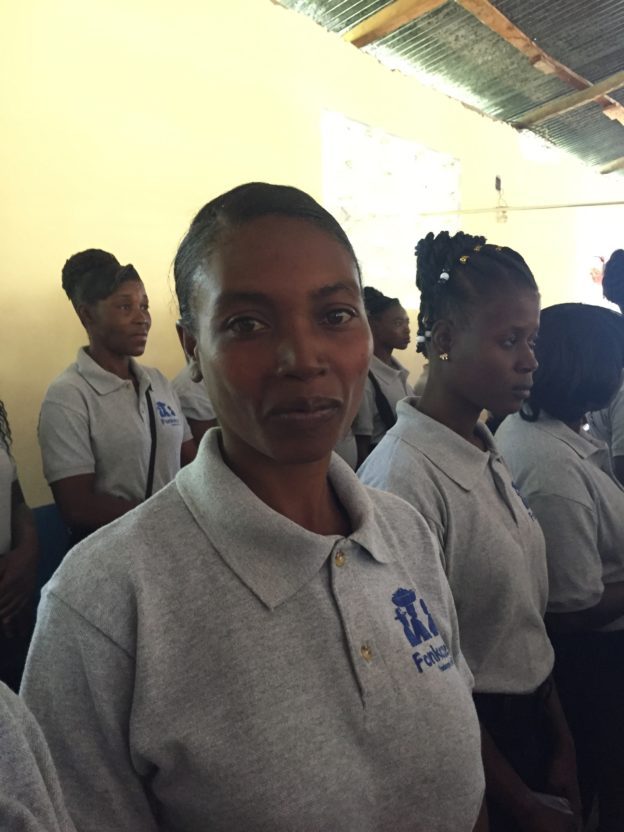When I first met Jeanne, she had recently been selected to participate in the CLM program. I had gone to interview her, because the data we collected from the selection process made her look too wealthy to be in our program. Our spreadsheet showed that she and her husband owned a pig and two goats, and though that might not seem like a lot to someone from the States, it seemed as though it would put her, if true, in a category distinctly different from the families living in ultra-poverty whom we work to serve.
The member of our management team who had approved her for the program, Wesnel Charles, had analyzed her case with care, and he turned out to be more than right. As I wrote at the time, “. . . by the time the couple joined the program, they seemed well qualified: no assets except some money owed to them, children who are hungry and not in school, and a miserable little shack that they would not even be able to stay in much longer.” You can read the original post here.
That was almost a year and a half ago, and Thursday Jeanne graduated from the program. Though she and her husband, Chilet, are still poor, their life is nothing like it was just two years ago. They’ve made significant progress, and they have objectives in front of them and plans for obtaining those objectives that suggest that their progress could continue.
Their three older children are in school. Their parents first sent them shortly after the family joined the CLM program, and the kids are now in the midst of their second year. Jeanne had the couple’s fourth child while she was in the program. The last months of her pregnancy and her months nursing the healthy new baby forced her to shut down the small commerce she had established with her case manager’s coaching. But shortly after the birth, she went to the local Partners in Health clinic, where she received an implant that should provide contraception for the next seven years. She’d like her fourth child to be her last. “Children are expensive. School is expensive, and food is expensive too,” she explains.
She is looking to the upcoming harvest to provide the means to restart her small commerce. She’ll do so as soon as she feels that she can leave her baby for short periods. She plans to return to the business that was working for her, selling groceries in the nearby market in downtown Laskowabas. There are two principal market days there each week, but like many downtown markets, there is traffic on other days too, so she will be able to go any day but Sunday that she finds she has time.
Two of her three goats are pregnant right now. Her pig is nearly ready for sale, and she plans to use proceeds from the sale to buy another goat and to add to her savings. She eventually wants to buy a cow, so accumulating savings is important.
And her livestock is the key to the most important change in her family’s life. When we met her, the family was virtually homeless, forced to squat in a small shack on a plot of land where they were no longer welcome. With her case manager’s help, she negotiated a two-year lease on a very small plot of land, just big enough for her to put up the home that CLM helped her construct and its accompanying latrine. The rent is 3000 gourds – less than $50 – for two years, and it corresponds nicely to the price of a large, healthy goat. If she can keep her goat-rearing enterprise moving, it should be able to cover the family’s housing needs for a while. Buying a cow would then change things for the better, giving her a large asset that she’ll be able to sell if she and Chilet can find a plot of land for sale.
When she talks about the difference that CLM has made in her life, she talks first about the security that has come with her new standing in the community. “If one of my children falls sick, I can always borrow 500 gourds or so from a neighbor if I need to. They see I have the means to pay them back. If I find myself blocked in something I want to do, I can find someone to help me out.”
But her new stature has her thinking not only of herself and the progress she’s made. She also thinks of others. “I want CLM to continue. You cannot be happy if you have things and others don’t.”
